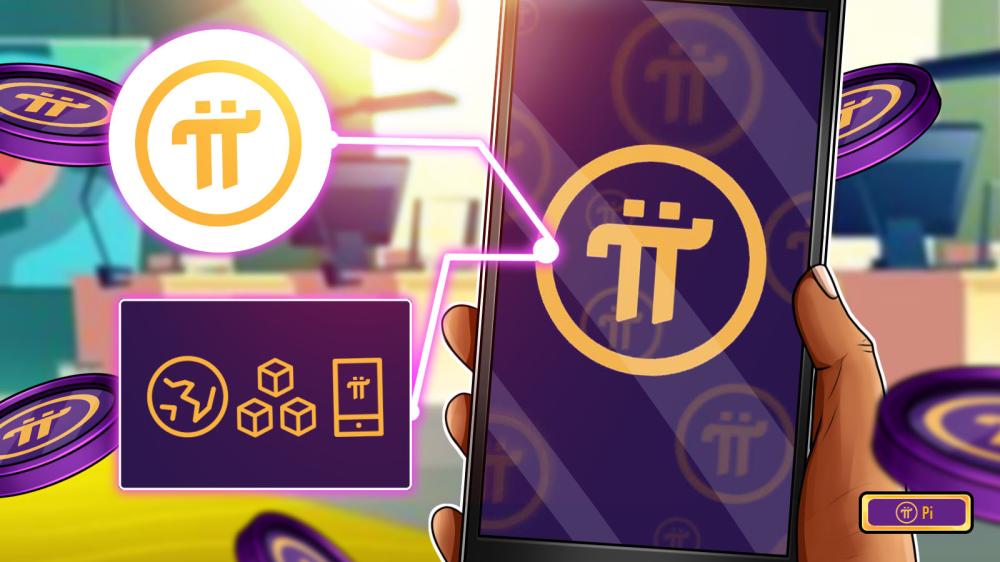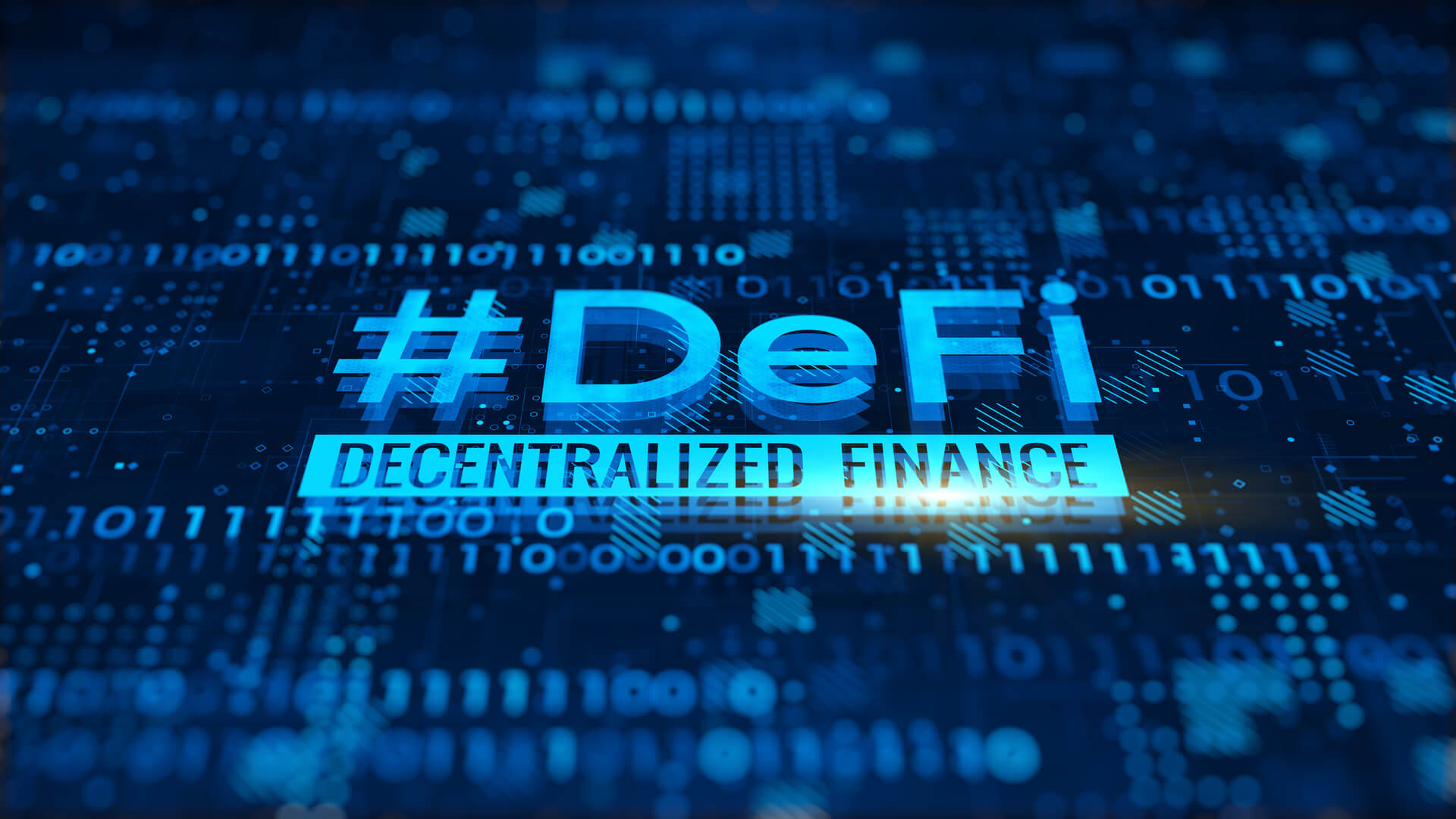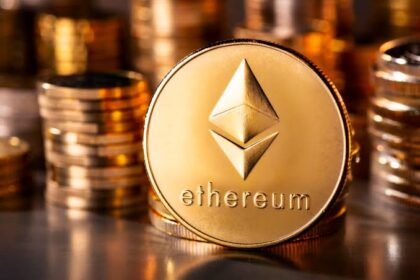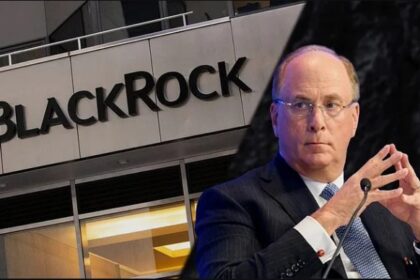The rapid evolution of decentralized finance (DeFi) markets is fundamentally altering the financial landscape, offering a decentralized alternative to traditional financial systems. Imagine a world where individuals can engage in borrowing, lending, trading, and interest earning activities with cryptocurrencies without the need for intermediaries such as banks. This transformative potential lies at the heart of DeFi.
At the core of DeFi’s functionality are two foundational elements:
1. Blockchain Technology: DeFi harnesses the capabilities of blockchain technology, which serves as the underlying infrastructure for cryptocurrencies like Bitcoin. Blockchains operate as distributed and immutable digital ledgers, ensuring security, transparency, and decentralization across a network of nodes. By eliminating the necessity for centralized oversight, blockchain technology facilitates trustless transactions and empowers individuals to engage in financial activities directly with one another.
2. Smart Contracts: DeFi protocols rely on smart contracts, autonomous pieces of code stored on the blockchain. These contracts execute predefined instructions when specific conditions are met, enabling automated and secure transactions without the need for intermediaries. Smart contracts underpin various DeFi applications, governing agreements related to lending, borrowing, trading, and more.
Key Features and Applications of DeFi
| Service | Description | Benefits | Risks |
|---|---|---|---|
| Staking | Lock up crypto to support a blockchain and earn rewards | Passive income, network security | Price volatility |
| Lending & Borrowing | Borrow or lend crypto directly with others | Earn interest on holdings, access capital | Volatility, potential hacks |
| Decentralized Exchanges (DEXs) | Trade crypto directly with others | Privacy, lower fees | Volatility, less user-friendly |
| Yield Farming | Optimize DeFi returns by moving assets between protocols | Maximize earnings | Complexity, high risk |
Benefits and Challenges of DeFi
Accessibility: DeFi promotes financial inclusion by offering accessible and permissionless financial services to individuals worldwide, including those underserved by traditional banking systems.
Transparency: Transactions on DeFi platforms are recorded on the blockchain, ensuring transparency and auditability of financial activities. This fosters trust among users and enhances the integrity of the ecosystem.
Innovation: DeFi’s open-source nature fosters innovation, leading to the continuous development of new protocols, applications, and financial instruments. However, this rapid innovation also poses challenges, such as security vulnerabilities and regulatory uncertainty.
The Future Outlook for DeFi
Despite its transformative potential, DeFi faces several challenges, including price volatility, security risks, and regulatory ambiguity. However, as the technology matures and regulatory frameworks evolve, DeFi is poised to play an increasingly significant role in the global financial landscape.
Looking ahead, continued innovation, enhanced security measures, and greater regulatory clarity will be essential for DeFi to realize its full potential. As adoption grows and traditional financial institutions increasingly recognize the benefits of decentralized finance, DeFi could emerge as a mainstream and resilient alternative to centralized financial systems. Nonetheless, users should remain vigilant, exercise caution, and stay informed about the risks associated with engaging in DeFi activities.
The decentralized finance (DeFi) markets have recently seen a flurry of activity, with significant fluctuations in trading volumes and market capitalizations across various platforms. As the demand for decentralized financial services continues to rise, investors and traders are closely monitoring the evolving landscape of DeFi markets.
Market Performance
Mixed Signals in Crypto Market: Bitcoin Up, BNB and XRP Down
The cryptocurrency market is experiencing mixed movements today. Bitcoin (BTC), the undisputed king of crypto, continues its reign near $70,410 USD, inching up by a modest 0.59%. This suggests a potential continuation of the recent bullish trend for Bitcoin.
Ethereum (ETH), the second-largest cryptocurrency by market capitalization, is also showing positive signs. It has climbed to $3,618 USD, reflecting a slightly more significant rise of 2.22%. This could be a sign of renewed investor confidence in the Ethereum ecosystem.
However, not all major cryptocurrencies are sharing the spotlight. Binance Coin (BNB), the native token of the Binance exchange, has dipped slightly in value. Ripple (XRP) is also facing a similar trend. While the specific reasons for these declines might be unclear, it highlights the inherent volatility of the cryptocurrency market.

in summary, today’s market movements paint a picture of cautious optimism. Bitcoin and Ethereum’s gains are encouraging signs, but the slight dips in BNB and XRP indicate a wait-and-see approach from some investors. It will be interesting to see how these trends unfold in the coming days.
DeFi Metrics
Decentralized exchanges (DEXs) remain a crucial cog in the DeFi machine, even amidst recent market fluctuations. While trading volume on DEXs has dipped by 27.78%, dropping to $5.5 billion USD, there’s a silver lining. The Total Value Locked (TVL) in DeFi protocols has held steady at $99.48 billion USD. This suggests that despite the market volatility, users are still committed to decentralized finance and holding onto their crypto assets within DeFi. The resilience of TVL highlights the ongoing potential of DeFi. DEXs and other DeFi protocols, though facing short-term market fluctuations, continue to offer innovative financial services that are attracting users and fostering a more decentralized financial future.
Key Players in DeFi
DeFi Booming: Lido, AAVE, Maker Lead the Charge in Decentralized Finance
The world of Decentralized Finance (DeFi) is witnessing a surge in popularity, with several protocols establishing themselves as major forces. These innovative platforms are attracting substantial investments and user participation, fundamentally changing how people interact with financial services.
Leading the pack are DeFi giants like Lido https://lido.fi/, EigenLayer, Aave https://aave.com/, MakerDAO https://makerdao.com/, and JustLend https://portal.justlend.org/. These protocols boast impressive Total Value Locked (TVL) figures, ranging from $7.67 billion USD to a staggering $35.25 billion USD according to DeFiLlama https://defillama.com/.
What’s driving this DeFi explosion? These protocols offer a compelling array of financial services, all without the traditional gatekeepers of banks and other centralized institutions. Here’s a glimpse into what DeFi has to offer:
- Staking: Lock up your crypto holdings and earn rewards for supporting the network. Lido, for example, allows users to stake various proof-of-stake tokens.
- Lending and Borrowing: Borrow crypto against your existing holdings or lend your assets to earn interest. Aave and MakerDAO are prominent players in this space.
- Asset Management: Simplify your DeFi experience with automated investment strategies offered by some protocols.
The rise of DeFi protocols like Lido, Aave, Maker, and JustLend signifies a significant shift in the financial landscape. By empowering individuals with greater control over their finances and fostering a more open and accessible financial system, DeFi is paving the way for a future where traditional finance might take a backseat.
Recent Developments
Indonesian College Student Sultan Gustaf Al Ghozali Makes Waves Again with New Memecoin Project, Raises $1.4 Million in Presale

Indonesian college student Sultan Gustaf Al Ghozali has captured attention once more in the realm of digital assets. Previously known for earning a substantial sum, exceeding $1 million USD, by selling NFTs of his daily selfies, Ghozali has reemerged with a fresh venture in the form of a memecoin project. The presale for this new memecoin has swiftly amassed $1.4 million USD, showcasing a resurgence of interest in memecoins among cryptocurrency enthusiasts. This development underscores the ongoing evolution and innovation within the cryptocurrency space, as individuals like Ghozali continue to explore novel ways to engage with digital assets and capture the imagination of the community.
Regulatory Concerns Rise Amid DeFi and Memecoin Craze
As the popularity of decentralized finance (DeFi) and memecoins continues to surge, regulatory authorities worldwide are increasingly expressing concerns about investor protection and market stability. Recent warnings issued by regulators in the UK and The Philippines highlight the need for caution among investors and influencers promoting financial products in the cryptocurrency space.
UK Regulatory Warning
In the United Kingdom, the Financial Conduct Authority (FCA) has released guidelines aimed at influencers who promote financial products, including cryptocurrencies. The FCA’s guidelines stress the importance of responsible promotion and transparency, especially in light of the risks associated with volatile assets like cryptocurrencies. With the rapid proliferation of memecoins and speculative trading, regulators are keen to ensure that investors are adequately informed about the potential risks before engaging in such activities.
The Philippines Regulatory Action
Similarly, regulators in The Philippines have taken steps to protect investors from the risks posed by cryptocurrencies. Authorities in The Philippines have blocked access to the Binance website, citing concerns about compliance with local regulations. This move underscores the regulatory scrutiny faced by cryptocurrency exchanges and platforms operating in jurisdictions with strict regulatory frameworks. By restricting access to unregulated platforms, regulators aim to safeguard investors and maintain the integrity of the financial system.
Impact on Investor Confidence
The regulatory warnings and actions in the UK and The Philippines reflect broader concerns within the global financial community about the rapid growth of DeFi and memecoins. While these innovative technologies offer opportunities for financial inclusion and innovation, they also pose significant risks, including market manipulation, fraud, and investor losses. Regulatory oversight plays a crucial role in addressing these risks and ensuring that market participants adhere to established standards of conduct and compliance.
HSBC Dives into Digital Gold, But Buyer Beware
In a move that ripples through the financial world, banking giant HSBC has become the first major institution to offer retail investors a tokenized gold product [HSBC Gold Token ON HSBC hk hsbc.com.hk]. This development signifies the growing embrace of digital assets by traditional financial institutions. However, before jumping in with both feet, there are some key things to understand about this new offering.
HSBC’s Gold Token: A Digital Take on a Classic Asset
Available through HSBC’s Orion digital assets platform in Hong Kong, the Gold Token allows individuals to invest in gold in a digital format. This offers several potential benefits, including potentially easier buying and selling compared to physical gold. However, there are crucial limitations to consider.
- Not Physical Gold: Unlike traditional gold bars or coins, these tokens don’t represent a direct claim on physical gold. You can’t redeem them for the precious metal itself.
- Limited Trading: Currently, these tokens can’t be traded on secondary markets like cryptocurrency exchanges. This restricts your ability to quickly sell your holding if needed.
HSBC Isn’t Alone in the Digital Gold Rush
While HSBC’s offering is a significant development, it’s not the only game in town. Several other players are already active in the digital gold space:
- Stablecoin Issuers: Established stablecoin issuers like Tether (USDT) and Paxos (PAX Gold) offer tokens pegged to the price of gold, providing a more tradable alternative.
- Global Expansion: Banks in countries like Russia and Turkey have also introduced their own gold-backed tokens, highlighting the international appeal of this digital asset class.
The Takeaway: Digital Gold Offers Convenience, But Comes with Caveats
HSBC’s foray into tokenized gold is a sign of the times, demonstrating the increasing convergence of traditional finance and digital assets. However, investors interested in this new product should be aware of the limitations. These tokens aren’t a direct substitute for physical gold and have restricted trading compared to other digital gold options.
For those seeking a more tradable and potentially more liquid way to invest in digital gold, exploring established stablecoins or offerings from other institutions might be a better fit. As the digital gold market continues to evolve, staying informed about the various options and their unique features is crucial for making sound investment decisions.
Recent Events in Asia
South Korea Detains Scammers, Philippines Blocks Binance, Do Kwon Faces Property Seizure
In a move highlighting the need for stricter regulations in the cryptocurrency space, South Korean authorities have detained individuals involved in a crypto scam that defrauded an elderly man of a staggering $4.1 million USD. This incident serves as a stark reminder of the vulnerability of investors, particularly those unfamiliar with the complexities of the crypto market, to fraudulent schemes.
Meanwhile, regulators in the Philippines have taken a different approach, opting to block access to the Binance website entirely. This decision stems from concerns that the world’s largest cryptocurrency exchange is not fully compliant with local regulations. The move raises questions about the future of cryptocurrency adoption in the Philippines and the potential impact on investors.
Adding another layer to the ongoing saga, South Korean authorities are set to seize a property belonging to Do Kwon, the founder of Terra. This action is part of a wider investigation into alleged financial misconduct surrounding the collapse of the TerraUSD (UST) stablecoin and its linked token, Luna, in May 2022. The incident sent shockwaves through the crypto industry, causing billions of dollars in losses for investors.
These developments underscore the ongoing challenges associated with cryptocurrency regulation. While South Korea’s focus seems to be on combating fraud and protecting investors, the Philippines’ approach suggests a more cautious stance towards the industry as a whole. The situation with Do Kwon further highlights the potential legal ramifications for individuals involved in projects that result in significant financial losses.
As the cryptocurrency market continues to evolve, it remains to be seen how regulatory landscapes will adapt to mitigate risks for investors and ensure the responsible development of the industry.
Conclusion
As the DeFi and cryptocurrency markets continue to evolve, stakeholders must navigate a complex landscape characterized by innovation, volatility, and regulatory scrutiny. While opportunities for profit abound, investors must remain vigilant and informed to mitigate risks and ensure the integrity of the market. With ongoing developments in Asia and beyond, the future of decentralized finance remains both exciting and uncertain, as industry players work to strike a balance between innovation and regulation in the pursuit of financial inclusion and innovation.

















I am sending you 1π! Pi is a new digital currency developed by Stanford PhDs, with over 47 million members worldwide. To claim your Pi, follow this link https://minepi.com/daiv101 and use my username (daiv101) as your invitation code.
Pi is a new digital currency developed by Stanford PhDs, with over 47 million members worldwide.
I am sending you 1π!
To claim your Pi, follow this link
https://minepi.com/dreamtreats and
use my username (dreamtreats) as your invitation code